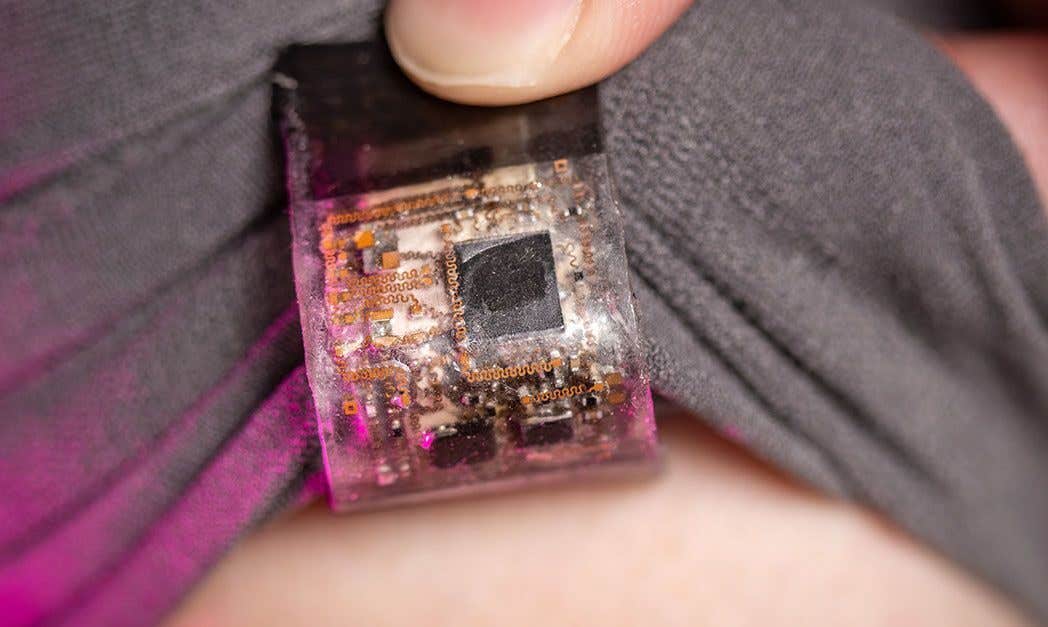New immunotherapy shows promising results in fighting skin cancer
A new class of immunotherapy has shown promising results in fighting the most aggressive form of skin cancer according to a new study.

[Apr. 27, 2023: Staff Writer, The Brighter Side of News]
A new class of immunotherapy has shown promising results in fighting the most aggressive form of skin cancer. (CREDIT: Creative Commons)
A new class of immunotherapy has shown promising results in fighting the most aggressive form of skin cancer, according to a study published in Nature Communications by researchers from King’s College London and Guy’s and St Thomas’ NHS Foundation Trust.
The study investigated whether a novel antibody could target and treat melanomas, and the results showed that the antibody activates the immune response to fight cancer and slows melanoma growth in mice.
Malignant melanoma is the most aggressive type of skin cancer, with poor survival rates for half of patients within five years of diagnosis. Although there has been substantial progress in developing immunotherapies, many patients’ tumors do not respond. This drug could benefit those patients with melanoma who do not respond to existing treatment.
Many existing immunotherapies used in cancer treatment belong to the antibody type called IgG. However, researchers at King’s College London and Guy’s and St Thomas’ have developed an IgE antibody that can utilize the patient’s own immune system to attack cancer in a different way.
Related News
Researchers developed an IgE antibody specific for a marker on the surface of human melanoma cells, called chondroitin sulfate proteoglycan 4 (CSPG4) found on up to 70% of melanomas. Immunotherapies currently available draw broadly upon the immune system’s defenses, however, this new antibody was designed to target immune responses specifically towards melanoma cells.
The researchers showed that CSPG4 IgE could attach to and activate immune cells found in melanoma patient blood to kill human melanoma cancer cells. CSPG4 IgE treatment slowed cancer growth in mice implanted with human immune cells, including cells from patients with melanoma. An allergy test conducted with patient blood found that CSPG4 IgE did not activate white blood cells called basophils, indicating that the therapy may be safe to take.
Dr Heather Bax, Postdoctoral Research Fellow from St. John's Institute of Dermatology, King’s College London, said: “We have shown that an immune response can be triggered by IgE immunotherapy for melanoma and that this applies to human melanomas and to melanoma patient immune responses. Our findings replicate existing observations for MOv18 IgE, the first anti-cancer IgE, which targets ovarian cancer, and supports development of IgE therapies for other solid tumors”.
A new class of immunotherapy shows promising results for fighting the most aggressive form of skin cancer. (CREDIT: Creative Commons)
Professor Sophia Karagiannis, from St. John's Institute of Dermatology, King’s College London, said: “Four in ten people with advanced melanoma do not respond to available treatments. Our findings show that the human immune system reacts differently in the presence of drugs based on IgE antibodies and points to the potential of applying IgE to mount an effective response against melanoma. This opens up the possibility of this new class of drugs to benefit different patient groups and a new frontier in the battle against cancer.”
Professor James Spicer, from King’s College London and a Consultant at Guy’s and St Thomas’ NHS Foundation Trust, said: "We have recently completed the first-ever trial testing an IgE therapy for cancer (MOv18 IgE), and are excited about the prospect of a whole new class of antibody drugs in oncology. The collaboration between the King's College London and Guy's and St Thomas' research groups is close and ever more productive."
CSPG4 IgE treatment can restrict tumor growth and induce human immune cell infiltration in a subcutaneous A375 in vivo model engrafted with healthy volunteer immune cells. (CREDIT: Nature Communications)
The first IgE antibody (MOv18 IgE) generated at King’s College London has been trialed for ovarian cancer, with results expected to be published later in 2023. Epsilogen Ltd owns rights to both CSPG4 IgE and MOv18 IgE. Epsilogen was spun out from King’s College London in 2017 and has attracted venture capital financing from multiple investors.
The researchers note that this new class of immunotherapy, which uses IgE antibodies, has the potential to revolutionize cancer treatment by providing a more targeted approach that can be personalized to individual patients.
According to the American Cancer Society, melanoma is responsible for the majority of skin cancer deaths, accounting for about 7,200 deaths in the United States each year. Despite advances in cancer treatment, including surgery, chemotherapy, and radiation therapy, many patients with advanced melanoma do not respond to these treatments, making the development of new therapies imperative.
The researchers note that the use of IgE antibodies in cancer treatment is a relatively new approach, with the first IgE antibody therapy for cancer (MOv18 IgE) currently in clinical trials for ovarian cancer. However, the researchers are optimistic that their findings will pave the way for the development of new IgE therapies for other solid tumors.
Dr. Heather Bax, the lead author of the study and a postdoctoral research fellow at St. John's Institute of Dermatology, King’s College London, said, "We have shown that an immune response can be triggered by IgE immunotherapy for melanoma and that this applies to human melanomas and to melanoma patient immune responses. Our findings replicate existing observations for MOv18 IgE, the first anti-cancer IgE, which targets ovarian cancer, and supports development of IgE therapies for other solid tumors."
The researchers say that their next step is to conduct clinical trials in humans to determine the safety and efficacy of CSPG4 IgE therapy for melanoma. If the trials are successful, CSPG4 IgE could become a new treatment option for patients with advanced melanoma who do not respond to existing therapies.
According to Professor James Spicer, from King’s College London and a Consultant at Guy’s and St Thomas’ NHS Foundation Trust, "The collaboration between the King's College London and Guy's and St Thomas' research groups is close and ever more productive. We have recently completed the first ever trial testing an IgE therapy for cancer (MOv18 IgE), and are excited about the prospect of a whole new class of antibody drugs in oncology."
Compared to CSPG4 IgG and control-treated mice, immunohistochemical studies showed elevated levels of human CD45+ leukocytes and CD68+ macrophages observed in subcutaneous A375 tumors excised from animals treated with CSPG4 IgE. (CREDIT: Nature Communications)
The researchers say that their work is an example of the power of collaboration between academia and industry, as their research was made possible by the collaboration between King's College London and Guy's and St Thomas' NHS Foundation Trust, as well as by the support of Epsilogen Ltd, a company spun out from King's College London in 2017 that owns the rights to both CSPG4 IgE and MOv18 IgE.
Overall, the researchers are optimistic that their work could lead to the development of a new class of immunotherapies for cancer that could revolutionize cancer treatment by providing a more targeted approach that can be personalized to individual patients. While more research is needed to fully understand the potential of IgE antibody therapy for cancer, the results of this study represent an important step forward in the fight against cancer.
Note: Materials provided above by The Brighter Side of News. Content may be edited for style and length.
Like these kind of feel good stories? Get the Brighter Side of News' newsletter.



